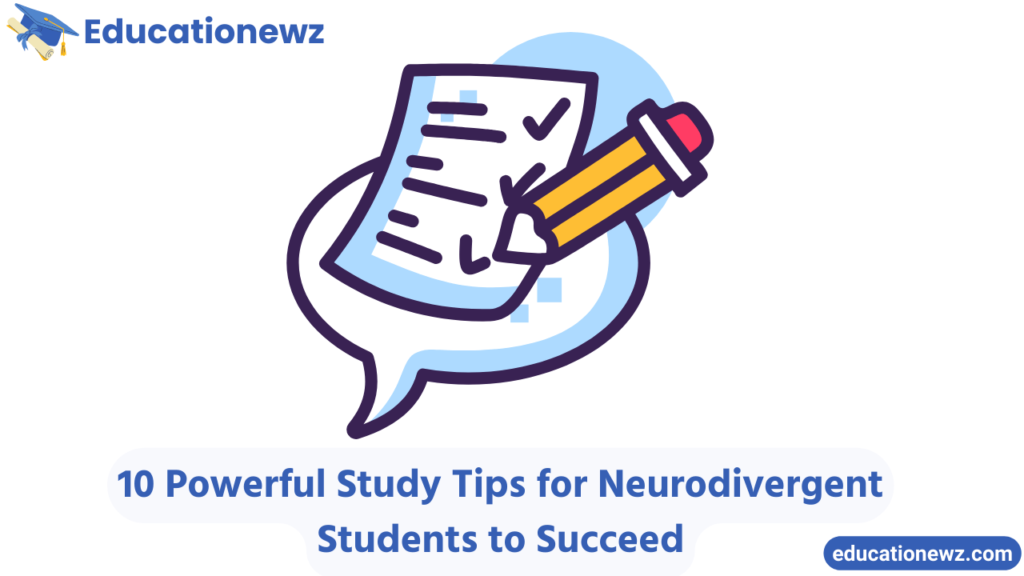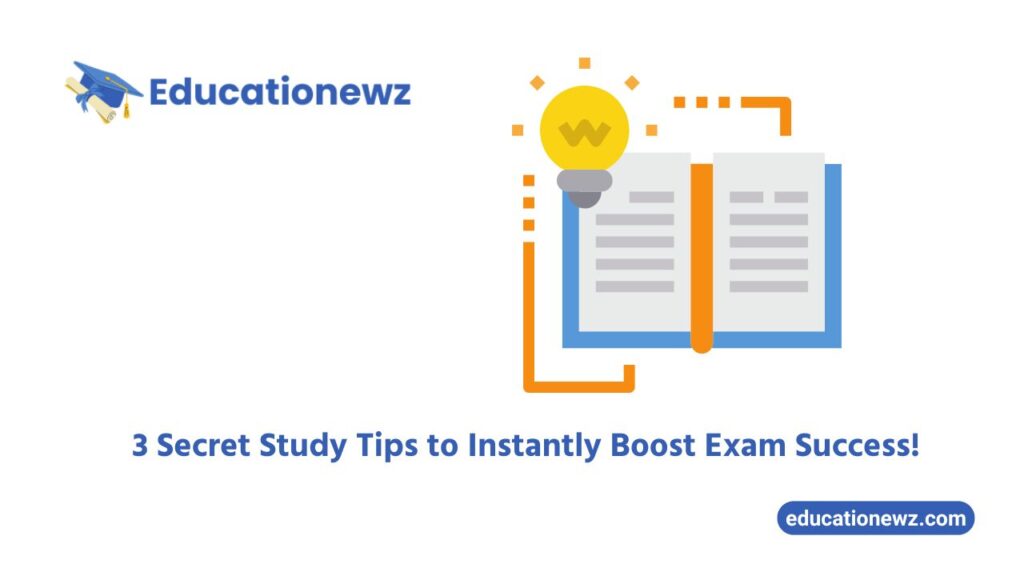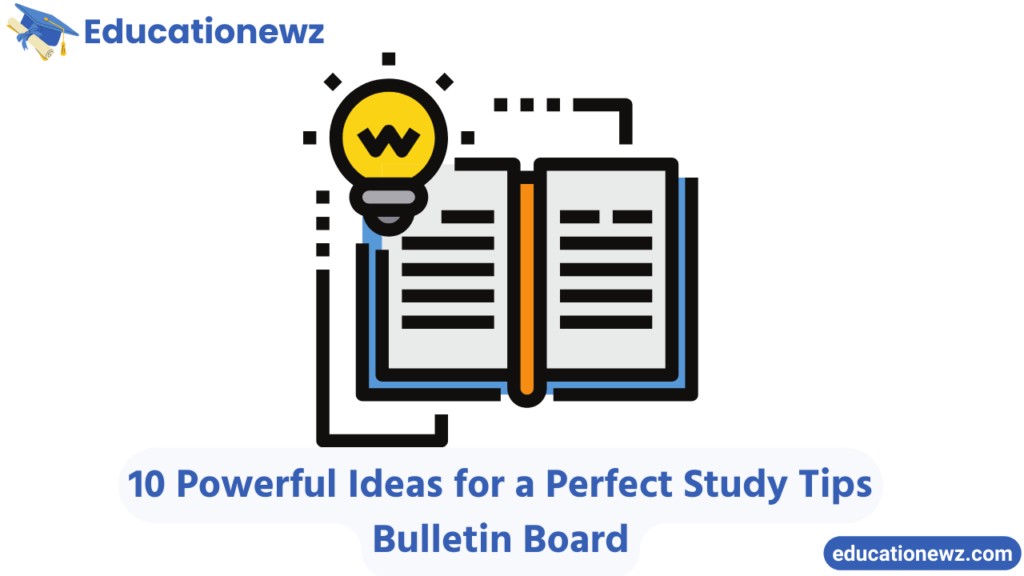Study Tips for Neurodivergent Students include creating a personalized study environment, using assistive technology, and following a consistent schedule to enhance focus, organization, and academic success.
For neurodivergent students, excelling in academics can come with unique challenges due to differences in how their brains process information. Students with conditions like ADHD, autism spectrum disorder, or dyslexia often face obstacles such as sensory overload, executive dysfunction, and difficulty focusing. However, with the right strategies and tools, they can thrive in their studies. This guide provides 10 study tips for neurodivergent students, empowering them to harness their strengths and overcome hurdles.
What is Neurodivergence?
Neurodivergence refers to the natural variations in the way the human brain functions and processes information. It’s an umbrella term that includes conditions like Autism Spectrum Disorder (ASD), Attention Deficit Hyperactivity Disorder (ADHD), dyslexia, and more. These neurological differences are often seen as integral to the diversity of human experiences rather than something to “fix.” Neurodivergent individuals may face challenges in areas like social interactions, time management, and communication. However, many also possess unique strengths, such as creativity, attention to detail, and innovative problem-solving abilities
Embracing neurodiversity is important because it celebrates the richness of human variation. Instead of focusing on “curing” these differences, the neurodiversity movement advocates for acceptance, accommodation, and inclusion, emphasizing that everyone deserves respect and support in both their personal and professional lives
Neurodivergence reminds us that no two brains work in the same way, and by fostering an inclusive environment, we can better support individuals in reaching their full potential.
Study Tips for Neurodivergent Students
1. Develop a Personalized Study Environment
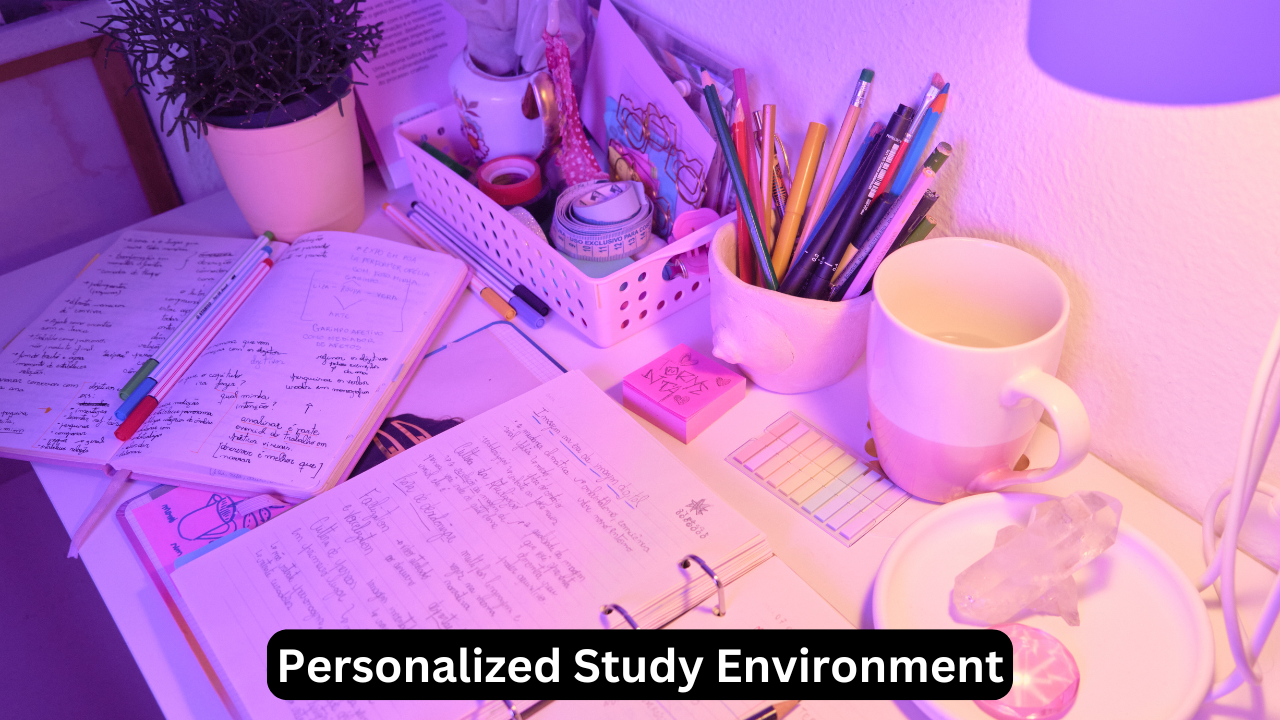
A well-designed study environment is crucial for neurodivergent students, as sensory inputs like noise, light, or clutter can be overwhelming. Opt for a space tailored to individual needs, ensuring minimal distractions.
For example:
- Use noise-canceling headphones if external sounds are bothersome.
- Adjust lighting to avoid glare or harsh brightness.
- Keep the study area tidy and organized, reducing visual clutter.
If staying at home feels isolating, choose a library or a quiet café with sensory aids like earplugs. Experiment with various settings to find what feels most comfortable and productive.
2. Establish a Consistent Study Schedule
For neurodivergent students, predictability and routine are key. A structured schedule can help reduce anxiety and prevent procrastination. Create a study plan with specific time blocks for each subject or task, ensuring that it aligns with energy peaks throughout the day.
How to Create a Neurodivergent-Friendly Study Plan:
| Steps | Details |
|---|---|
| Set Goals | Define clear, achievable objectives. |
| Prioritize Tasks | Focus on subjects needing more attention. |
| Time Management | Allocate short, focused intervals (e.g., Pomodoro). |
| Adjust Regularly | Review and modify based on progress. |
Use tools like planners, apps, or visual schedules to maintain consistency.
3. Incorporate Assistive Technology
Technology can be a game-changer for neurodivergent learners. Apps and tools are designed to address challenges like organization, note-taking, and focus.
Top Tools for Neurodivergent Students:
- Speechify: Converts text to speech for auditory learning.
- Evernote: A versatile app for taking and organizing notes.
- MindMeister: Facilitates mind mapping for visual learners.
- Forest: Encourages focus with the Pomodoro technique.
These tools help students tailor their learning experience, making it more intuitive and manageable.
4. Take Advantage of Support Systems
Seeking support can significantly enhance learning outcomes for neurodivergent students. Build connections with professors, mentors, and peers for personalized guidance.
Effective Support Study Tips for Neurodivergent Students:
- Attend Office Hours: Discuss challenges and clarify doubts with instructors.
- Join Study Groups: Collaborate with peers for shared learning experiences.
- Engage Tutors or Coaches: Work with professionals trained in neurodivergent needs.
Building a support network fosters motivation, accountability, and a sense of belonging.
5. Use Active Learning Techniques
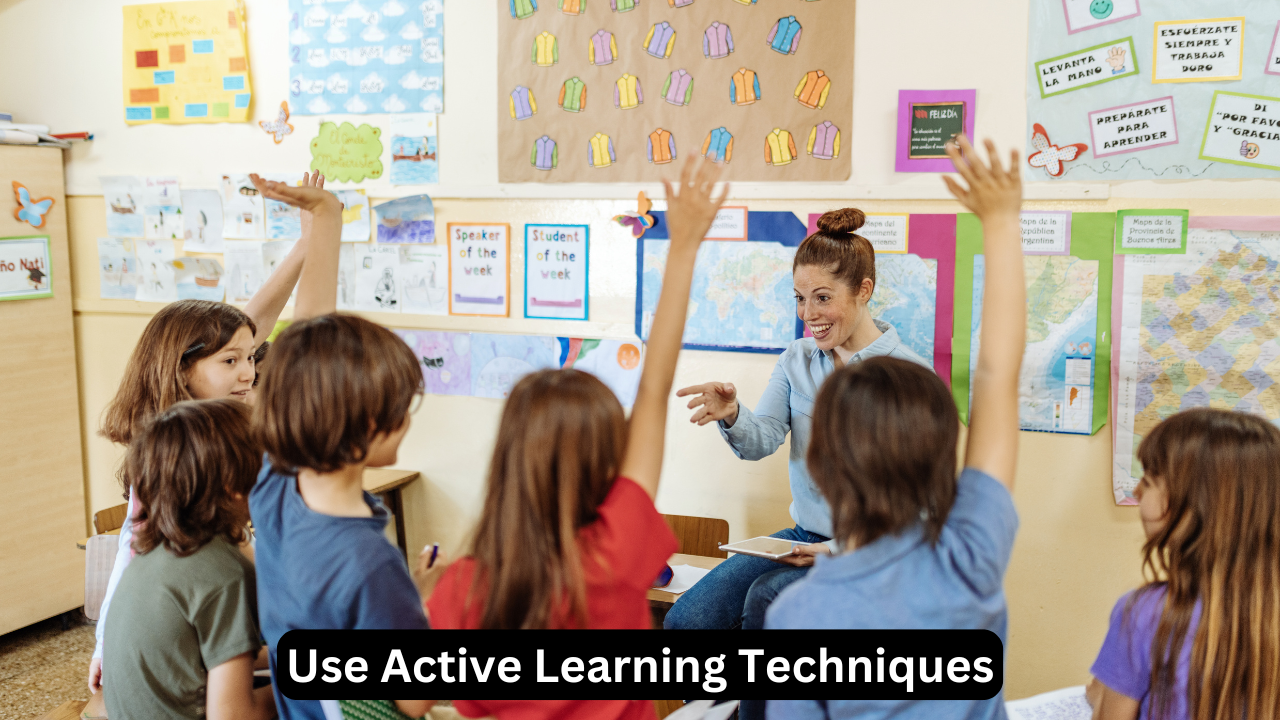
Passive studying often leads to information loss. Engage with material actively to retain concepts better.
Tips for Active Learning:
- Ask Questions: Interact with the content by questioning its relevance and application.
- Summarize Key Points: Write concise summaries of lessons.
- Practice Retrieval: Test yourself regularly to reinforce learning.
- Create Visual Aids: Use diagrams, charts, or flashcards for better retention.
Active methods cater to diverse learning styles, making studying more effective.
6. Master the Art of Note-Taking
Efficient note-taking is vital for academic success. Neurodivergent students may benefit from personalized techniques to enhance their understanding and recall.
Tips for Note-Taking:
- Color Coding: Highlight key points using specific colors for better categorization.
- Chunking: Break information into smaller, manageable sections.
- Structured Notes: Use formats like Cornell notes for clarity.
- Visual Summaries: Include graphs, flowcharts, or sketches.
Investing time in assistive tools like digital pens or note-taking apps can further optimize the process.
7. Manage Focus and Distractions
Maintaining focus can be challenging for neurodivergent learners, especially those with ADHD. Strategies to manage distractions are essential for productivity.
Practical Solutions for Focus:
- Pomodoro Technique: Alternate between focused work sessions and short breaks.
- Minimize Disruptions: Turn off notifications on devices or use app blockers like Freedom.
- Stimulating Music: Use apps like Focus@Will to create a concentration-friendly playlist.
Small adjustments, like removing unnecessary items from the desk or setting daily priorities, can make a significant difference.
8. Embrace Breaks and Self-Care
Regular breaks are vital for maintaining mental well-being and preventing burnout. Neurodivergent students often require sensory resets to recharge.
Effective Break Strategies:
- Short Breaks: Take 5–10 minutes to stretch or hydrate after every 25–30 minutes of study.
- Longer Resets: Dedicate time for hobbies, exercise, or mindfulness activities like meditation.
- Relaxation Apps: Use tools like Calm to manage stress and promote relaxation.
Incorporating self-care into daily routines enhances focus and overall productivity.
9. Customize Learning Resources
Sources for Adaptable Learning Resources
| Learning Resource Type | Description | Where to Find It |
|---|---|---|
| Audiobooks | Narrated books ideal for auditory learners | Platforms like Audible, Libby, and Google Play Books |
| Podcasts | Educational audio content | Apps like Spotify, Apple Podcasts, and Stitcher |
| Interactive Videos | Engaging content combining visuals and audio | Websites like YouTube, Khan Academy, and Edpuzzle |
| Hands-On Activities | Practical exercises to reinforce concepts | Kits and guides from Amazon, MakerSpaces, or subject-specific platforms like Code.org |
| Digital Courses | Comprehensive interactive study materials | Platforms like Coursera, Udemy, and Skillshare |
| Visual Study Tools | Tools for diagrams and concept mapping | Apps like MindMeister, Lucidchart, and Canva |
Traditional learning materials may not suit every neurodivergent student. Adapt resources to meet individual needs for better comprehension.
Adaptable Learning Options:
- Audiobooks and Podcasts: Ideal for auditory learners.
- Interactive Videos: Combine visual and auditory elements for engagement.
- Hands-On Activities: Reinforce concepts through practice and application.
Choosing resources that align with personal learning styles can make complex subjects more accessible.
10. Reflect and Revise
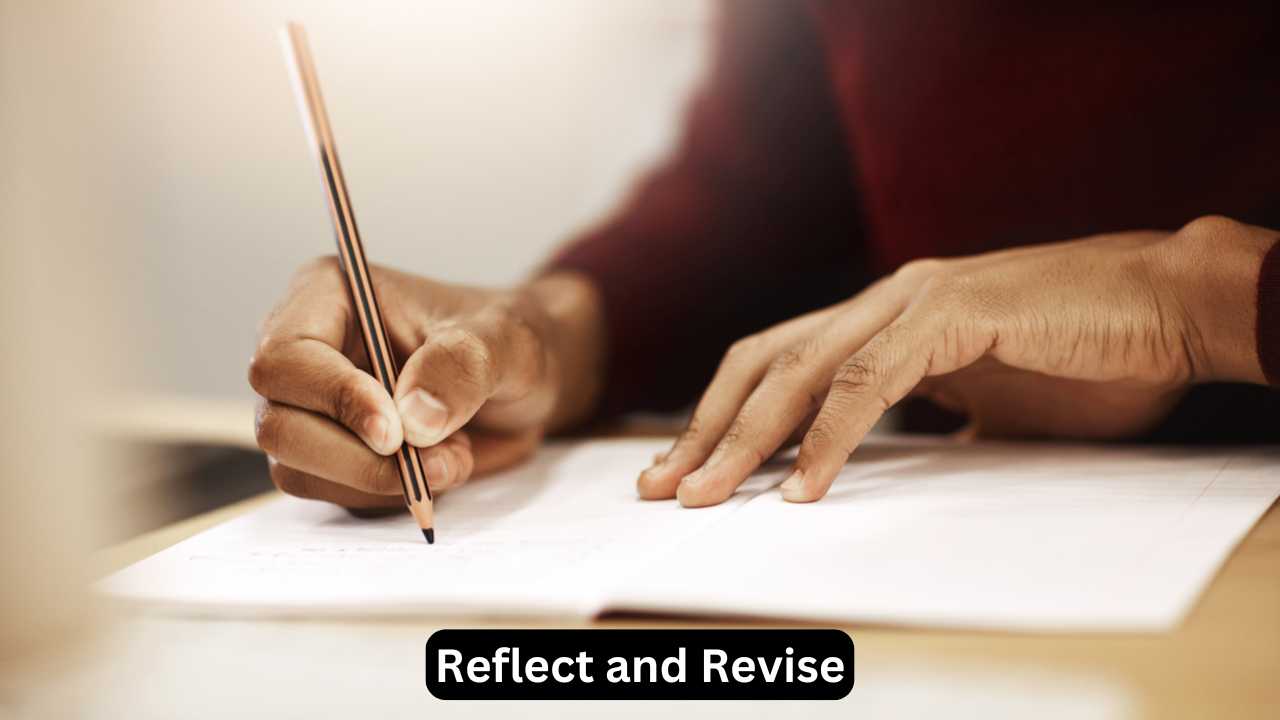
Reflection helps in identifying what works best for individual learning needs. Neurodivergent students should review their strategies regularly and adjust based on outcomes.
Steps for Effective Reflection:
- Track Progress: Use apps like Todoist to monitor completed tasks.
- Evaluate Techniques: Identify which methods yield the best results.
- Seek Feedback: Discuss strengths and areas for improvement with mentors or peers.
- Revise Plans: Adapt goals and strategies for continuous growth.
Consistency in reflection ensures long-term academic success.
FAQs
1. What are the best study tools for neurodivergent students?
Apps like Speechify, Evernote, and Focus@Will cater to different needs, including organization, auditory learning, and concentration.
2. How can I improve focus during study sessions?
Use methods like the Pomodoro Technique, reduce distractions with app blockers, and create a sensory-friendly study environment.
3. What’s the ideal study schedule for neurodivergent learners?
A consistent, flexible schedule that includes breaks and aligns with energy levels works best.
4. How do I choose the right study environment?
Opt for quiet, clutter-free spaces or use aids like noise-canceling headphones in public settings.
5. Can neurodivergent students excel academically?
Absolutely! With tailored strategies and support, they can leverage their strengths to achieve academic success.
6. What role does assistive technology play in learning?
Assistive tools enhance accessibility, organization, and focus, empowering students to navigate challenges effectively.
7. How can I manage sensory overload during studies?
Adjust lighting, use noise-canceling headphones, and declutter your workspace to create a calming environment.
8. What are the benefits of taking breaks?
Breaks prevent burnout, improve focus, and rejuvenate mental energy for sustained productivity.
Conclusion
By applying these 10 study tips tailored for neurodivergent students, learners can unlock their full potential and take proactive steps toward achieving their academic goals. The key is recognizing and embracing individual strengths while actively seeking strategies that work best for them. Success comes from leveraging unique capabilities—whether it’s creativity, problem-solving, or attention to detail—and creating an environment that supports these traits.
Moreover, seeking the right tools and support—whether through technology, individualized plans, or understanding mentors—can make a tremendous difference in boosting confidence and motivation. Remember, everyone’s learning journey is unique, and by embracing neurodiversity, we ensure that all students have the opportunity to thrive academically and personally.
Embrace what makes you different, and let it be your superpower. With the right strategies, success is not only possible—it’s inevitable. Please follow our blog Educationewz.

